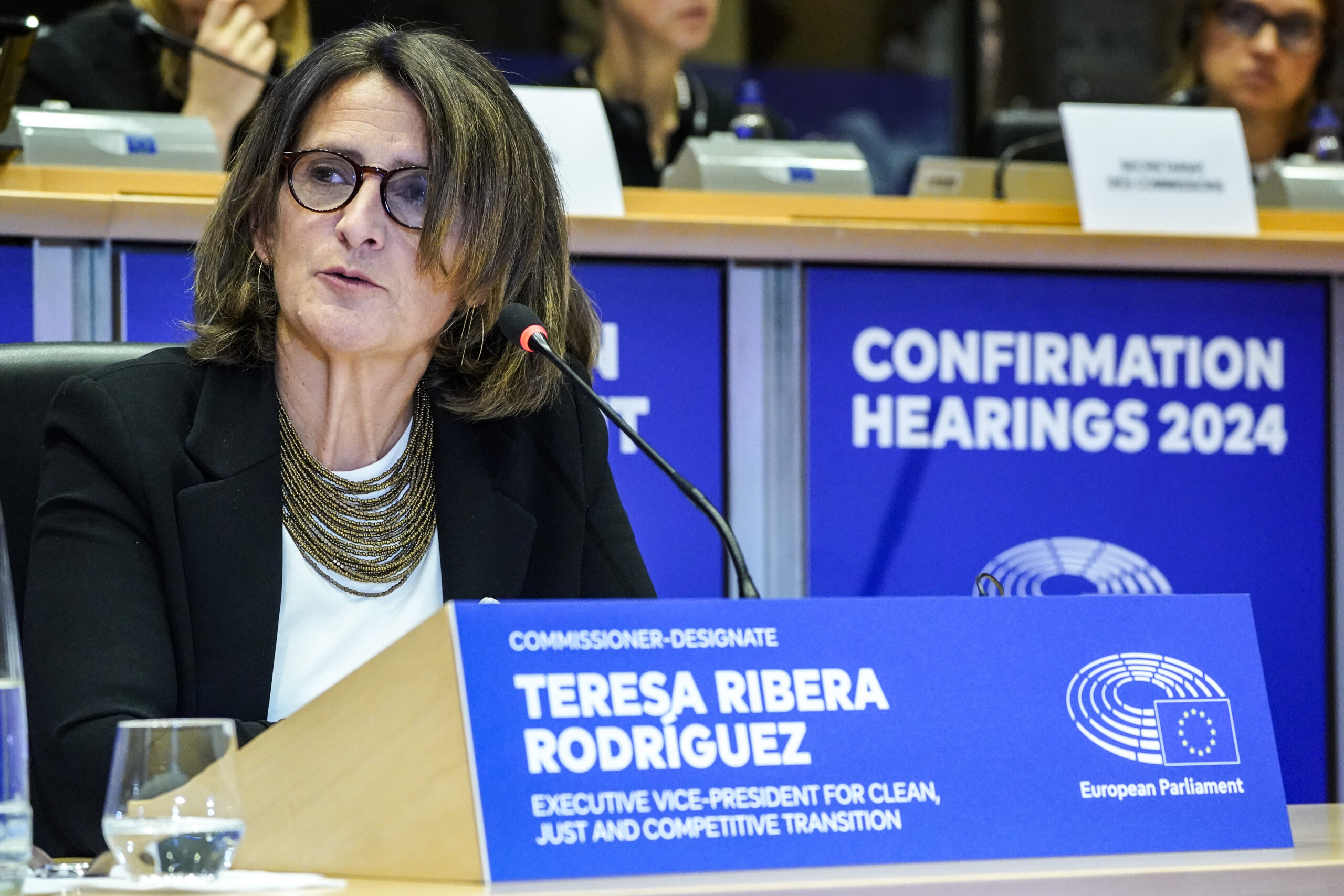Brussels – On the deadlock for the formation of the new College of European Commissioners, the issues will come to a head on Wednesday, Nov. 20, when in Madrid, the EU executive vice-president-designate, Teresa Ribera, will appear before the Cortes to report on her work during the floods in Valencia while in Brussels there will be a meeting between the group leaders of the European Parliament that should close the game on the nominations. To avert the possible political harakiri of the Socialists (S&D) and Populars (EPP), came a warning from Antonio Tajani: “Europe cannot afford not to be an interlocutor, wasting time on political whims is a serious mistake,” said the Italian deputy prime minister and leading figure in the EPP.
After the European Parliament gave the go-ahead without major fuss to 19 out of the 20 simple commissioners, the pro-European majority backing Ursula von der Leyen stalled on the six executive vice-presidencies. In particular, Socialists and Populars are blocking Italy’s Raffaele Fitto and Spain’s Teresa Ribera, respectively. While on the former, the issue has been known for some time and involves the Italian candidate’s membership in a party (Fratelli d’Italia) that is considered extreme right-wing and did not support von der Leyen’s reelection in July, on the current Minister for Ecological Transition in Pedro Sanchez’s government, there is a harsh clash in Spain over the attribution of responsibility between Madrid and the regional government for the 220 victims of the floods in Valencia.

As recently as yesterday (Nov. 17), the spokeswoman for Spain’s Partido Popular, part of the EPP family, warned that the Iberian center-right party would not support the establishment of the European Commission if the Socialist minister were to be part of it. “There is no possibility that the Partido Popular could support a European government [led by Ursula von der Leyen] that involves Teresa Ribera after everything that has happened in the last two weeks,” said Dolors Montserrat. That would be a significant defection to the count needed for the final vote scheduled for the Nov. 26-28 European Parliament plenary session: the PP delegation in Brussels has 22 MEPs.
In the European capital for the EU Foreign Affairs Council, Tajani sought to appeal to the “common sense” of his Spanish colleagues: “We need everybody to reflect on the importance of having the European Commission up and running as soon as possible,” he told reporters because “there is a very complicated international situation, the war in Ukraine and the Middle East, the situation in the Red Sea, and tensions in many parts of the world.” As if that were not enough, “a new president of the United States has just been elected,” Tajani added.
For the leader of Forza Italia, after Ribera’s briefing to the Spanish Parliament, “it will be necessary to proceed” without further delay. Tajani’s appeal is also to fellow opposition members, who are threatening to block Fitto of the party of Prime Minister Giorgia Meloni. “We are convinced that Fitto has all the qualifications not only to be commissioner but also executive vice president. Not voting for Fitto means blocking Mrs. Ribera’s nomination,” he stressed. Tajani said he was “optimistic that common sense will prevail in the end.” Perhaps it is also a reminder to the leader of the EPP, Manfred Weber, who, instead of rallying the ranks, is accommodating the Spanish Populars, whom he needs to be confirmed president of the European People’s Party at the Congress to be held precisely in Valencia in April.
However, the Generalitat Valenciana could offer a way out – or a further twist — in the Ribera case: according to reports from the Spanish News Agency EFE, the regional parliament is ready to file a motion of censure against Governor Carlos Mazón – a member of the Popular Party who leads the region in coalition with the VOX far-right party – for having underestimated the emergency.
English version by the Translation Service of Withub









